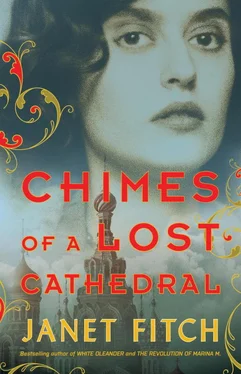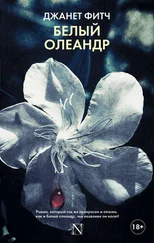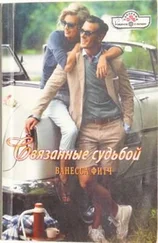Soviet Russia, what was left of it, a tenth of what had been. Red in the center, like a heart, in a sea of White.
“But they’ve got a weakness,” said Styopa, dropping ash on the map. “Sure, we’ve lost a lot of territory, but we’re fighting back-to-back. That’s the way you want to fight. Short supply lines. We can move men wherever we need them.” He sketched quick zigzags back and forth across the heart of Red Russia. “See? Kolchak’s got to send out all the way to Omsk for his laundry and shoe polish.” His finger traced a straight line six inches east of the Urals. “Easy to cut anywhere along the line.” The Trans-Siberian—always that train. My father saw its importance from the beginning. “The peasants are already rebelling behind the lines, in Irkutsk, and the Transbaikal.” He pointed to areas in the Far East, places so remote I couldn’t imagine them except in one of Ukashin’s tales about hidden monks and their ancient rites. “Those atamans out there are as crazy as bedbugs. Even the stupidest peasants are unrolling red banners. The Red Army doesn’t have to win, it just has to survive. The people will do the rest.”
He folded the map and put it on his little bedside table. Berkovin coughed in the next room, reminding us how thin the walls were. Styopa rested his coarse hand on the mound of my belly. I knew he liked the way it felt, hot, like rising bread. Sometimes it irritated me, to be enjoyed in such an animal way, sometimes it felt reassuring. We lay in the light of his kerosene lantern, watching his cigarette smoke rise in the spring-scented night. The house was so quiet I could hear the ticking of his watch. He burrowed his unshaven face into my neck. It must have felt good to him, but it left me with a rash. “Do you love me at all, lisichka ?” My little fox, my redhead.
I sighed and sat up, straightening my nightdress—sewn by myself out of a torn sheet Korsakova had given me. I was reluctant to lie, though he clearly wanted me to say yes. I whispered. “I love being with you. Can that be enough?”
He smiled, a little sadly, pulled me in for another kiss.
“Tomorrow?”
“I’ll try.” Poor Styopa, I thought as I left his room, closing the door so very gently, not to alert Berkovin. If only I could have warned him not to fall in love with me. But who ever listened to such a warning?
The night was full of snoring, one man so buzzily sonorous—Gendelev? Zhubin?—I could have hopped the whole length of the hall singing “La Marseillaise” and not have been heard. Yet still I crept down the hall in my felt slippers, skirting the noisier boards, thinking that this was how the world worked. How interchangeable we were. Lost your man? Well, here’s another, nothing wrong with him, and his one arm would keep him out of the army. Bozhe moi.
I inched up the creaking staircase to the third floor, where Korsakova slept in the room opposite ours, listening as I held my breath and lifted our door by the knob before swinging it open—fast—and slipping inside. Closing it—but not all the way—and placing a slipper behind it to keep it from swinging open again.
I’d certainly become pragmatic. How do you like that, Varvara? Pregnant with one man’s child, married to another, and sleeping with a man who got me a job in a boarding house—five arms between them. I shed my shawl and slipped into bed, Liza’s braids ribboned on the pillow opposite. I tried not to think about how crude I’d become. I’d once wanted to live in a poem, but this was the real world, without grandeur or heroics. I needed a gentle man to hold me, a kind man with a ration card who didn’t mind massaging my aching legs with his one strong hand.
Moonlight fell across my bed over the tops of the curtains. Although I was exhausted, the moon tugged at my blood. I wondered where Father was, now that Ufa had been taken. Was he dancing with his bright-haired mistress to “God Save the Tsar”? Were they together again? Was she passing information on their every move back to Moscow?
I thought about Siberia, the vast sweep of it. Beyond Omsk, Kolchak’s capital, lay the terrible lands commanded by the Cossack atamans. Styopa said they flayed prisoners alive, men and women. Disemboweled them. Tortured them in ways that made them no longer recognizable as humans. And through their territories laced the spider thread of the Trans-Siberian, which Papa’s Englishmen had coveted like a string of diamonds. Maybe my father was on that train right now, heading for China. He and his horrible woman. Though someday, when my soul was placed on the great scales, I knew that I would be called to account for naming her. And she, for her own perfidies.
Walking together in the long spring twilight up by the ponds, Styopa and I attempted to talk, get to know one another. He talked about the loss of his arm, his former work as a mechanic, his current job in the station yard maintaining signals. He was resigned about the loss. “Just one of those things, lisichka .” He talked about his family, all railway workers—father, a section boss on the Vologda line; his brothers and how they went fishing; his dear mama; a fragile girl he’d loved who’d died of a bad heart. The light lingered like a lover, reminding me of Kolya. Little feet, where are you now? The railwayman and I sat in the twilight where we could look back at the Uspensky Monastery with its massed cupolas and five bell towers like teeth of a comb, looking so much like that enchanted city under the lake. I waited to hear the bells from the tower, but they never rang anymore. The bell ringers were gone, the monks scattered, arrested, or hunkered down in the cloisters. The trees now covered by the mist of pale green.
I told Styopa I was married to a poet, who had left me for Moscow, that I was drifting, that he didn’t know we were having a child. I said that my father was a typesetter, that my mother was very religious, that they quarreled. “There really are poets nowadays?” he asked.
“That’s what I’m doing with the Women’s Club. ‘For children’s sake, your help they need, / Soviet mothers, learn to read!’”
“Hey, that’s good,” he said, his weathered face smiling, potato-nosed. A kind and honest face. “You think of poets as guys in tight pants talking about clouds.”
“All kinds of poets,” I said. “Some aren’t even guys.”
Draftees thickened the streets like flour in gravy. They marched in groups, their heads newly shaved, they looked like so many taste buds reaching out to lick the air. It tasted raw and smoky, the tang of mud, the bitterness of spring. Peasant boys mostly, in rough clothes and bast shoes, herded in from the countryside like sheep rounded up from scattered meadows. I thought of village vengeance, how the peasants offered up the families they liked the least, pointed them out as hoarders and kulaks— At least they left the family. Except Motka, they took him for the army. No wonder the Red troops melted away at the first sight of Kolchak.
I dropped off the slogans at the Women’s Club. Not exactly Blok, but it kept Sergeevna satisfied. I had to be careful with her—the appearance of reinforcements, anyone with a pulse, would be seen as water in the desert. As it was, she hinted that she would sponsor me for party membership, if I’d study and prepare. “Such a waste, a girl like you scrubbing pots.” But the idea of becoming a party member, signing my life over to the Cause, turned my blood to water. I agreed with much the Bolsheviks were trying to do, but I did not believe anymore. I had used up my stores of belief, my cupboards were bare. I could hope that the Bolsheviks would achieve what they set out to do, but my heart and soul remained my own. If only I could squeak through the cracks of all ideologies and loyalties and demands and dictates in this life, with a little beauty intact, a little poetry, it would be enough.
Читать дальше












